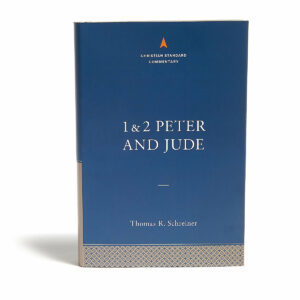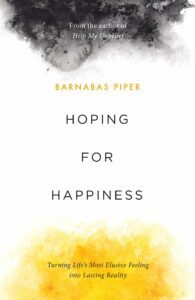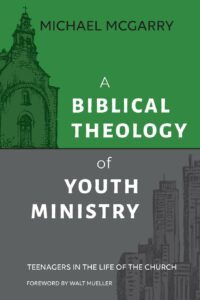Barnabas Piper's Blog, page 40
February 5, 2021
New Happy Rant Sports: The All-NBA Corpse Team
In this episode of the Happy Rant Sports podcast Ted and Barnabas talk NBA and the Super Bowl:
Our All-NBA Corpse team (players who are still going, but not really)Our favorite bad NBA team of all timeSuper Bowl predictionGet Your Coffee We’ve joined forces with Redbud Coffee, based out of Auburn IL, to bring you deliciously roasted and beautifully packaged coffee. Check out their variety of roasts and be sure to use the code HappyRant at checkout to get a 10% discount off your purchase.
We’ve joined forces with Redbud Coffee, based out of Auburn IL, to bring you deliciously roasted and beautifully packaged coffee. Check out their variety of roasts and be sure to use the code HappyRant at checkout to get a 10% discount off your purchase.
To listen you can:
Subscribe in iTunes.Listen on Google PlayListen on StitcherListen via just about any podcast app/streaming service out thereLeave us a rating in iTunes (it only takes 1 click and it really helps us).Listen using the player below.Episode #48
New Happy Rant: Little Debbie, Good Conferences, and Speciesism
In this episode of The Happy Rant Ted, Ronnie, and Barnabas do what they always do and wander to and fro through a variety of topics:
A wealth of oatmeal creme piesHappy Cakes and snack mogulsRonnie, Jared C., and male feminismWhat is a good conference and what is the best we have been to?Speciesism is so offensiveThe one book of course we would recommend mostSponsor This episode is brought to you by the Christian Standard Bible. The goal of the CSB is to be faithful to the original languages without sacrificing clarity, all the while maintaining both accuracy and readability. With hundreds of Bibles to choose from, everyone can find a CSB Bible that they enjoy for personal study, teaching, and discipleship. Learn more at CSBible.com.
This episode is brought to you by the Christian Standard Bible. The goal of the CSB is to be faithful to the original languages without sacrificing clarity, all the while maintaining both accuracy and readability. With hundreds of Bibles to choose from, everyone can find a CSB Bible that they enjoy for personal study, teaching, and discipleship. Learn more at CSBible.com.
Get 50% off Christian Standard Commentaries’s or CSB Scripture Notebooks for the month of Feb. Just use the code CSBFEBHAPPY21
Get 40% off any CSB Bible on Lifeway.com for the month of Feb (limited to 1 CSB Bible). Just use the code CSBFEB2021.
Get Your Coffee We’ve joined forces with Redbud Coffee, based out of Auburn IL, to bring you deliciously roasted and beautifully packaged coffee. Check out their variety of roasts and be sure to use the code HappyRant at checkout to get a 10% discount off your purchase.
We’ve joined forces with Redbud Coffee, based out of Auburn IL, to bring you deliciously roasted and beautifully packaged coffee. Check out their variety of roasts and be sure to use the code HappyRant at checkout to get a 10% discount off your purchase.
To listen you can:
Subscribe in iTunes.Listen on Google PlayListen on StitcherListen via just about any podcast app/streaming service out thereLeave us a rating in iTunes (it only takes 1 click and it really helps us).Listen using the player below.
Episode #332
New Happy Rant: Little Debby, Good Conferences, and Speciesism
In this episode of The Happy Rant Ted, Ronnie, and Barnabas do what they always do and wander to and fro through a variety of topics:
A wealth of oatmeal creme piesHappy Cakes and snack mogulsRonnie, Jared C., and male feminismWhat is a good conference and what is the best we have been to?Speciesism is so offensiveThe one book of course we would recommend mostSponsor This episode is brought to you by the Christian Standard Bible. The goal of the CSB is to be faithful to the original languages without sacrificing clarity, all the while maintaining both accuracy and readability. With hundreds of Bibles to choose from, everyone can find a CSB Bible that they enjoy for personal study, teaching, and discipleship. Learn more at CSBible.com.
This episode is brought to you by the Christian Standard Bible. The goal of the CSB is to be faithful to the original languages without sacrificing clarity, all the while maintaining both accuracy and readability. With hundreds of Bibles to choose from, everyone can find a CSB Bible that they enjoy for personal study, teaching, and discipleship. Learn more at CSBible.com.
Get 50% off Christian Standard Commentaries’s or CSB Scripture Notebooks for the month of Feb. Just use the code CSBFEBHAPPY21
Get 40% off any CSB Bible on Lifeway.com for the month of Feb (limited to 1 CSB Bible). Just use the code CSBFEB2021.
Get Your Coffee We’ve joined forces with Redbud Coffee, based out of Auburn IL, to bring you deliciously roasted and beautifully packaged coffee. Check out their variety of roasts and be sure to use the code HappyRant at checkout to get a 10% discount off your purchase.
We’ve joined forces with Redbud Coffee, based out of Auburn IL, to bring you deliciously roasted and beautifully packaged coffee. Check out their variety of roasts and be sure to use the code HappyRant at checkout to get a 10% discount off your purchase.
To listen you can:
Subscribe in iTunes.Listen on Google PlayListen on StitcherListen via just about any podcast app/streaming service out thereLeave us a rating in iTunes (it only takes 1 click and it really helps us).Listen using the player below.
Episode #332
January 28, 2021
New Happy Rant: How It Started, How It’s Going
In this episode of The Happy Rant Ted, Ronnie, and Barnabas do what they always do and wander to and fro through a variety of topics by answering how it started and how it’s going about:
This showWritingTed on social mediaSponsor This episode is brought to you by the Christian Standard Bible. The goal of the CSB is to be faithful to the original languages without sacrificing clarity, all the while maintaining both accuracy and readability. With hundreds of Bibles to choose from, everyone can find a CSB Bible that they enjoy for personal study, teaching, and discipleship. Learn more at CSBible.com. Get 40% off any CSB Bible on Lifeway.com for the month of Feb (limited to 1 CSB Bible). Just use the code CSBFEB2021.
This episode is brought to you by the Christian Standard Bible. The goal of the CSB is to be faithful to the original languages without sacrificing clarity, all the while maintaining both accuracy and readability. With hundreds of Bibles to choose from, everyone can find a CSB Bible that they enjoy for personal study, teaching, and discipleship. Learn more at CSBible.com. Get 40% off any CSB Bible on Lifeway.com for the month of Feb (limited to 1 CSB Bible). Just use the code CSBFEB2021.
 We’ve joined forces with Redbud Coffee, based out of Auburn IL, to bring you deliciously roasted and beautifully packaged coffee. Check out their variety of roasts and be sure to use the code HappyRant at checkout to get a 10% discount off your purchase.
We’ve joined forces with Redbud Coffee, based out of Auburn IL, to bring you deliciously roasted and beautifully packaged coffee. Check out their variety of roasts and be sure to use the code HappyRant at checkout to get a 10% discount off your purchase.
To listen you can:
Subscribe in iTunes.Listen on Google PlayListen on StitcherListen via just about any podcast app/streaming service out thereLeave us a rating in iTunes (it only takes 1 click and it really helps us).Listen using the player below.
Episode #331
January 22, 2021
Shame and the Art of Motorcycle Maintenance
In this episode of The Happy Rant Ted, Ronnie, and Barnabas do what they always do and wander to and fro through a variety of topics:
How is 2021 going?Finding validation in workNew swag and alternate uniformsRonnie and motorcyclingWhy we’re still doing this thingMegachurch pastor sex tipsGet Your Coffee We’ve joined forces with Redbud Coffee, based out of Auburn IL, to bring you deliciously roasted and beautifully packaged coffee. Check out their variety of roasts and be sure to use the code HappyRant at checkout to get a 10% discount off your purchase.
We’ve joined forces with Redbud Coffee, based out of Auburn IL, to bring you deliciously roasted and beautifully packaged coffee. Check out their variety of roasts and be sure to use the code HappyRant at checkout to get a 10% discount off your purchase.
To listen you can:
Subscribe in iTunes.Listen on Google PlayListen on StitcherListen via just about any podcast app/streaming service out thereLeave us a rating in iTunes (it only takes 1 click and it really helps us).Listen using the player below.Episode #330
January 20, 2021
Finding Happiness in Times of Trouble
What does it mean to truly live in a world full of trouble? This is one of those times where we especially need to see how Scripture speaks to the grit and grind of life.
At least part of it comes back to enjoying God’s good gifts. Scripture encourages enjoyment and pleasure, and those don’t cease in the midst of pain and trouble. In fact, those are the times when the good gifts of God matter most because they remind us of his present love and ongoing goodness to us. Yet in times of trouble, our inclination will often be to either abuse or disregard these gifts from God.
Sometimes we will want to inoculate ourselves to the pain, so we binge bourbon or Ben and Jerry’s. Sometimes we want a cocoon to hide in, so we curl up inside the safety of stories told by Netflix or Hulu. But if we are replacing the giver with the gifts and depending on the gifts to do what only the giver can, then something has gone wrong in our hearts–we’ve moved from appreciation to idolatry..
The other side of this is the inclination to disregard his good gifts. In times of trouble we lose our appetites. We withdraw from friends. We lose motivation at work. We stop laughing. Can a joke or a drink or a job solve our woes? No, but they are a means through which God gives happiness in the midst of trouble. They are like His “Get Well Soon” or “Just Thinking of You” card. So we seek to taste and laugh and love and work, even as we cry and hurt and struggle.
These good gifts are not separate from the good news of Jesus unless we separate them. It is not theology and all that other stuff, unless we remove that other stuff from the realm of Jesus’ victory. In a very real, everyday sense, the good gifts God gives on earth are deeper and richer and better because of Jesus. Because of Jesus, we don’t have to depend on them but rather we are free to enjoy them. Because of Jesus, we don’t need to hoard them but are free to share them. Because of Jesus, we are free to enjoy them but not fear them. And because of Jesus, we can find happiness in them even when life is terrible, because we know the giver and we know life will not always be terrible.
The Bible reframes happiness for us by complexifying it. We tend to think of being happy or sad, but Scripture depicts a sort of happiness in the midst of sadness. In this life we will have trouble, but in this life we will have happiness. And this doesn’t mean being on an emotional yo-yo (even though it will sometimes feel that way), but rather experiencing two things at once, one being the damage caused by sin and the other being the happiness given by God. This happiness, true happiness, is rooted in Jesus because only through his work on the cross do we have assurance that one day, “he will wipe away every tear from their eyes, and death shall be no more, neither shall there be mourning, nor crying, nor pain anymore, for the former things have passed away.” (Revelation 21:4).
Our incomplete, marred, temporary happiness looks ahead to that day. But being incomplete, marred, and temporary doesn’t make it a farce. In Jesus our happiness is deep and real, even as we face the troubles of life.
 This is an excerpt from Hoping for Happiness. A biblical framework for living a grounded, hopeful, and genuinely happy life, this book gets far beyond the topic of work and helps us to throw off both the unrealistic expectations that end in disappointment and the guilty sense that Christians are not meant to have fun.
This is an excerpt from Hoping for Happiness. A biblical framework for living a grounded, hopeful, and genuinely happy life, this book gets far beyond the topic of work and helps us to throw off both the unrealistic expectations that end in disappointment and the guilty sense that Christians are not meant to have fun.
January 15, 2021
New Happy Rant Sports: Bad Predictions, Rebuilds, and Deshaun Watson
In this episode of the Happy Rant Sports podcast Ted and Barnabas wander to and from through a handful of sports topics:
Bad NFL predictions, particularly about the Bills, Justin Herbert, and moreThe Allen Iverson of the NFLDream team rebuildsNightmare team rebuildsDeshaun Watson’s futureGet Your Coffee We’ve joined forces with Redbud Coffee, based out of Auburn IL, to bring you deliciously roasted and beautifully packaged coffee. Check out their variety of roasts and be sure to use the code HappyRant at checkout to get a 10% discount off your purchase.
We’ve joined forces with Redbud Coffee, based out of Auburn IL, to bring you deliciously roasted and beautifully packaged coffee. Check out their variety of roasts and be sure to use the code HappyRant at checkout to get a 10% discount off your purchase.
To listen you can:
Subscribe in iTunes.Listen on Google PlayListen on StitcherListen via just about any podcast app/streaming service out thereLeave us a rating in iTunes (it only takes 1 click and it really helps us).Listen using the player below.Episode #48
January 14, 2021
New Happy Rant: Tchotchke Book Marketing, Opportunism, and Awomen
In this episode of The Happy Rant Podcast Ted, Ronnie, and Barnabas do what they always do and wander to and fro through a variety of subjects:
Mailing tchotchke’s to promote booksDriscoll’s marketing opportunismAmen and AwomenRonnie’s podcast hosting insurrectionSPONSOR Our sponsor for this week’s episode is Randall House Publishers and their book A Biblical Theology of Youth Ministry by Michael McGarry. Many churches continue to employ the same methods for youth ministry that have become entrenched over the last few decades, while others are questioning the need for youth ministry at all. McGarry explores the foundation of youth ministry in the Old and New Testaments and brings that together with Church history in a compelling way. This contemplative and well-researched book provides a careful critique of youth ministry along with practical guidance for those serving in ministry. McGarry shares five pillars of gospel-centered youth ministry and reminds readers of the spiritual priority of parents.
Our sponsor for this week’s episode is Randall House Publishers and their book A Biblical Theology of Youth Ministry by Michael McGarry. Many churches continue to employ the same methods for youth ministry that have become entrenched over the last few decades, while others are questioning the need for youth ministry at all. McGarry explores the foundation of youth ministry in the Old and New Testaments and brings that together with Church history in a compelling way. This contemplative and well-researched book provides a careful critique of youth ministry along with practical guidance for those serving in ministry. McGarry shares five pillars of gospel-centered youth ministry and reminds readers of the spiritual priority of parents.
 We’ve joined forces with Redbud Coffee, based out of Auburn IL, to bring you deliciously roasted and beautifully packaged coffee. Check out their variety of roasts and be sure to use the code HappyRant at checkout to get a 10% discount off your purchase.
We’ve joined forces with Redbud Coffee, based out of Auburn IL, to bring you deliciously roasted and beautifully packaged coffee. Check out their variety of roasts and be sure to use the code HappyRant at checkout to get a 10% discount off your purchase.
To listen you can:
Subscribe in iTunes.Listen on Google PlayListen on StitcherListen via just about any podcast app/streaming service out thereLeave us a rating in iTunes (it only takes 1 click and it really helps us).Listen using the player below.Episode #329
January 7, 2021
New Happy Rant: Old Man Stuff and Purpose Driven Malls
In this episode of The Happy Rant Ted, Ronnie, and Barnabas do what they always do and wander to and fro through a variety of topics:
Old man sleep patterns and witch doctor remedies
Bad restaurant experiences
Mall nostalgia
Purpose Driven malls
Coming to terms with aging
How violent terms became positives
SPONSOR
AND be sure to check out Dwell Bible App. Dwell is a Bible listening app that we love! If you are looking for a convenient, fresh way of spending more time in God’s word Dwell is ideal. Go to https://dwellapp.io/happyrant to get 20% off your subscription.
Get Your Coffee
 We’ve joined forces with Redbud Coffee, based out of Auburn IL, to bring you deliciously roasted and beautifully packaged coffee. Check out their variety of roasts and be sure to use the code HappyRant at checkout to get a 10% discount off your purchase.
We’ve joined forces with Redbud Coffee, based out of Auburn IL, to bring you deliciously roasted and beautifully packaged coffee. Check out their variety of roasts and be sure to use the code HappyRant at checkout to get a 10% discount off your purchase.
Be sure to visit HappyRantPodcast.com where you can:
Order your Redbud coffee
Connect with Ted, Ronnie, or Barnabas to speak for your church, organization, or event
Support the podcast through our Patreon page . This helps us cover production and hosting costs so we can keep this thing rolling
To listen you can:
Subscribe in iTunes.
Listen on Google Play
Listen on Stitcher
Listen via just about any podcast app/streaming service out there
Leave us a rating in iTunes (it only takes 1 click and it really helps us).
Listen using the player below.
Episode #328
January 6, 2021
The Most Important Quotes From “The Pastor’s Kid”
The following quotes are the ones I see as most indicative of the message and tone of my book, The Pastor’s Kid: What It’s Like and How to Help. I hope some of them pique your interest, strike a nerve, or rattle your brain and heart a bit.
The life of a PK is complex, occasionally messy, often frustrating, and sometimes downright maddening. It can be a curse and a bane. But being a PK can also be a profound blessing and provide wonderful grounding for a godly life. Often the greatest challenges are the greatest grounding and the biggest falls are the best blessings. This polarity exemplifies the challenge it is to be a PK.
The congregation has more responsibility than it knows to care for and ease the burden of the pastor and his family.
A child doesn’t know the call of his pastor father. All he knows is the effects it has on his life. He doesn’t feel moved to ministry, because he’s not. Yes, it is the call of the child to honor his parents, but that is not the same as a call to vocational ministry.
A PK might hear ten comments or questions on a Sunday from ten different people, each of whom has no intention whatsoever of prodding or snooping. Even the sheer number of people who greet the PK by name is constricting. It all adds up to a feeling of being watched. And watched is what PKs so often do feel, all the time, in everything. It is life in a fishbowl, exposed, on display.
PKs want to be known, not just known of.
We don’t gain relationship with God by osmosis from our dads, regardless of their scriptural studies or dynamic preaching. Our moms’ faithful service can’t do a thing to wash away our sins. No, we need to get to know Jesus and be won by Him.
God’s grace is very big, and there are numerous ministry families that are healthy. But this cannot be assumed. Ministry is a burden on families, one that is worth bearing for many, but a burden nonetheless.
Often the church is not a safe place to have doubts, or at least it doesn’t feel safe.
There is a huge difference between knowledge of biblical facts and confidence in biblical reality.
So often we assume a person has leadership qualities because of the family name or the good looks or the booming voice.
Legalism creates false expectations. It is a false standard of holiness based on some extrabiblical standard, some man-made understanding of morality.
Legalism creates more than just an inability to reach the moral standard. It creates an inability to even figure out what that standard is because it breeds hypocrisy.
There is a straightforward, blunt, in-your-face expectation that PKs will behave “better” than our peers. We will have inherently better judgment, avoid temptations common to our age and gender, express none of our baser thoughts or feelings, and generally reflect positively on our parents and their position. Which is total nonsense.
We don’t drink, we don’t chew, and we don’t go with girls who do. Alcohol is of the Devil. TV rots your brain. Dating is bad, so you should only court—or better yet, have an arranged marriage. Smoking will not only kill you, it will send you to hell. Tattoos are evil. Syncopated rhythm is the gateway for the Devil to enter your body and make you move in sensual ways. If Jesus comes back while you’re watching an R-rated movie, He’ll leave you behind.
Few people can do hypocrisy more smoothly than a PK. On the outside he is devout, polite, and involved. On the inside he is cold, angry, and detached. Or maybe he is simply confused.
I spent all those years knowing all the right answers about everything, convincing everyone I was all good. But at no point did I know what I believed. I knew answers, but not reality. I knew cognitive truth, but not experiential truth.
It is only grace that has restored me. It was the awful power of God’s grace that peeled back layer after layer of hypocrisy, my onion self, to expose my heart to what I knew answers about but truly needed to believe.
A more important identity question faces PKs than “Who am I?” and that is “Who is Jesus?”
Being around Jesus-related teaching, literature, and events all the time makes Jesus rote in the minds and hearts of PKs. Rote is mundane. When Jesus becomes mundane, He ceases being life-changing and life-giving.
Jesus is Dad’s boss. Jesus is the job. Jesus is boring. Jesus is all seriousness and no fun. Jesus is judgmental. Jesus is a religious blowhard. Jesus is legalistic. Jesus is a soft-spoken wimp. Jesus cares about poor people and despises the rich. Jesus cares about rich people and ignores the poor. Jesus is a hard-line teacher with no room for questions or doubts. Jesus is white. And so on. Every one of these descriptions is a reflection of a church culture or a caricature of a single aspect of who Jesus is. But none of them is Jesus.
Dads put on a good face, but most of us spend most of the time scrambling to figure out what it means to be a good father. Without grace from both God and our families, we would be lost.
What the PK needs is parents who not only admit to being sinners but actually admit to sins. It is far more powerful for a child to see his parents admitting, apologizing for, and working to correct real, actual sins.
Shame is guilt compounded so many times over that it becomes unbearable and begins to shape us. It is guilt as an identity, the feeling that I am bad because of all the things I have done.
Sin turns everything on its head; it makes truth look like a lie and makes lies look appealing.
Even as Jesus showed such mercy to the dregs of society, He was hard on one set: the self-righteous prigs who burdened others and withheld grace. These were the people who made it harder for others to draw near to God or know Him.
Christianity is full of mystery and unknown depths because God is deeply mysterious. That’s why this faith is so amazing. If everything can be explained in clear terms, the impression the PK is given is that Christianity is a nicely buttoned-up, black-and-white construct.
Partial forgiveness is not forgiveness at all. In fact, that’s a nonsense phrase because partial forgiveness is false forgiveness.
The pressure of keeping my father in his job by being “submissive” is not something that makes me (or any other PK) want to follow Jesus. The tacit reminder that our rebellion may cost Dad his job is not an expression of grace leading to repentance and restoration. It is a cause for resentment.
Jesus’s grace was so profound that it unlocked hearts, evicted evil, and won sinners to Him time and again.
Jesus walked every mile He has asked me to walk.
Pastors, your children need a parent, not a pastor. They don’t need you to bring the expectations of your job into the home.
I believe in callings. I believe God pulls people toward particular positions and occupations. I do not, however, believe that the pastoral calling is a higher calling than any other. Unique? Yes. But not higher.
Sermons at home are even less effective for PKs than those from the pulpit.
We don’t need a prefab faith but rather the learning and materials to build a strong faith in any context.
The pastor needs to be a parent at all times—in the pulpit, the board room, the office, at the Little League diamond, the dinner table, and his kids’ bedsides. His church and his family both need to see his devotion to parenting, to family.
The church must create an expectation of acceptance. Accept that the pastor is finite and fallible. Accept that he makes mistakes, and accept his admittance of making them. Accept that he does not have time for everyone and he never will. Accept that his family is more important to him than the church members.



